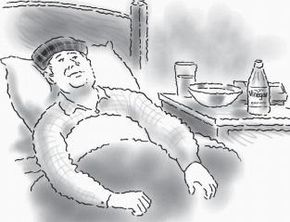Key Takeaways
- Vinegar has various uses in home improvement, including cleaning surfaces, removing stains and neutralizing odors.
- It can also be used as a natural weed killer in outdoor spaces and as a solution for unclogging drains.
- Vinegar is an eco-friendly and cost-effective alternative to many commercial cleaning products.
The chemical properties of vinegar make it useful for many common repair and maintenance jobs around the house. Vinegar keeps painting odors at bay and can remove sticky things such as furniture glue, wallpaper paste, and adhesive decals from a variety of surfaces. This ingredient does wonders removing rust and cleaning surfaces to prepare for painting or staining.
Here are ways in which vinegar can be of help in home-improvement projects:
Advertisement
Advertisement
